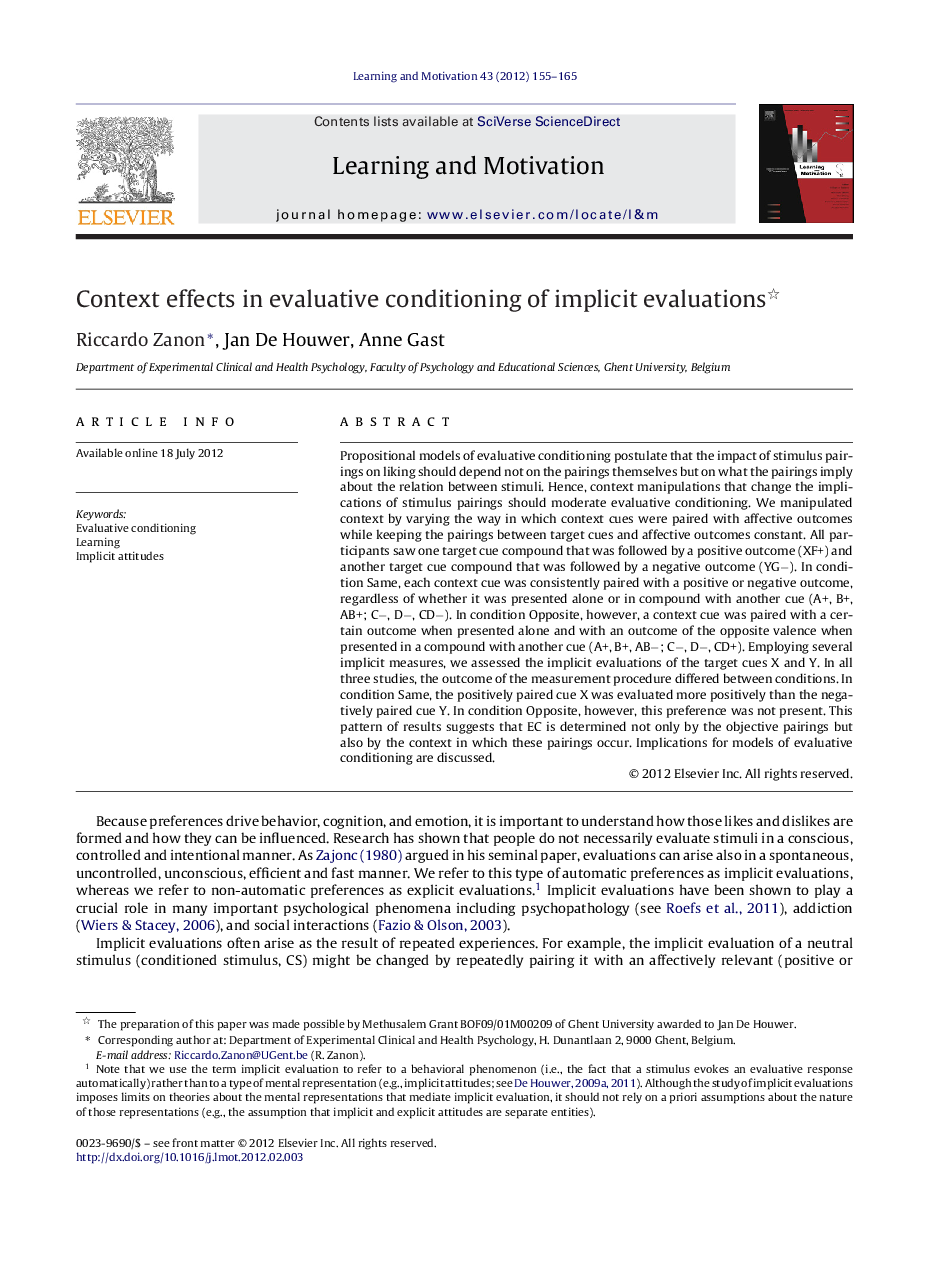| کد مقاله | کد نشریه | سال انتشار | مقاله انگلیسی | نسخه تمام متن |
|---|---|---|---|---|
| 918987 | 919865 | 2012 | 11 صفحه PDF | دانلود رایگان |

Propositional models of evaluative conditioning postulate that the impact of stimulus pairings on liking should depend not on the pairings themselves but on what the pairings imply about the relation between stimuli. Hence, context manipulations that change the implications of stimulus pairings should moderate evaluative conditioning. We manipulated context by varying the way in which context cues were paired with affective outcomes while keeping the pairings between target cues and affective outcomes constant. All participants saw one target cue compound that was followed by a positive outcome (XF+) and another target cue compound that was followed by a negative outcome (YG−). In condition Same, each context cue was consistently paired with a positive or negative outcome, regardless of whether it was presented alone or in compound with another cue (A+, B+, AB+; C−, D−, CD−). In condition Opposite, however, a context cue was paired with a certain outcome when presented alone and with an outcome of the opposite valence when presented in a compound with another cue (A+, B+, AB−; C−, D−, CD+). Employing several implicit measures, we assessed the implicit evaluations of the target cues X and Y. In all three studies, the outcome of the measurement procedure differed between conditions. In condition Same, the positively paired cue X was evaluated more positively than the negatively paired cue Y. In condition Opposite, however, this preference was not present. This pattern of results suggests that EC is determined not only by the objective pairings but also by the context in which these pairings occur. Implications for models of evaluative conditioning are discussed.
► Rules implied by context influence evaluative conditioning effects.
► The effect of pairings on implicit evaluation can be modulated by propositional rules.
► Effects of rules on implicit evaluation is consistent across different implicit measures.
► Reverse evaluative conditioning effects can be obtained under specific context conditions.
Journal: Learning and Motivation - Volume 43, Issue 3, August 2012, Pages 155–165